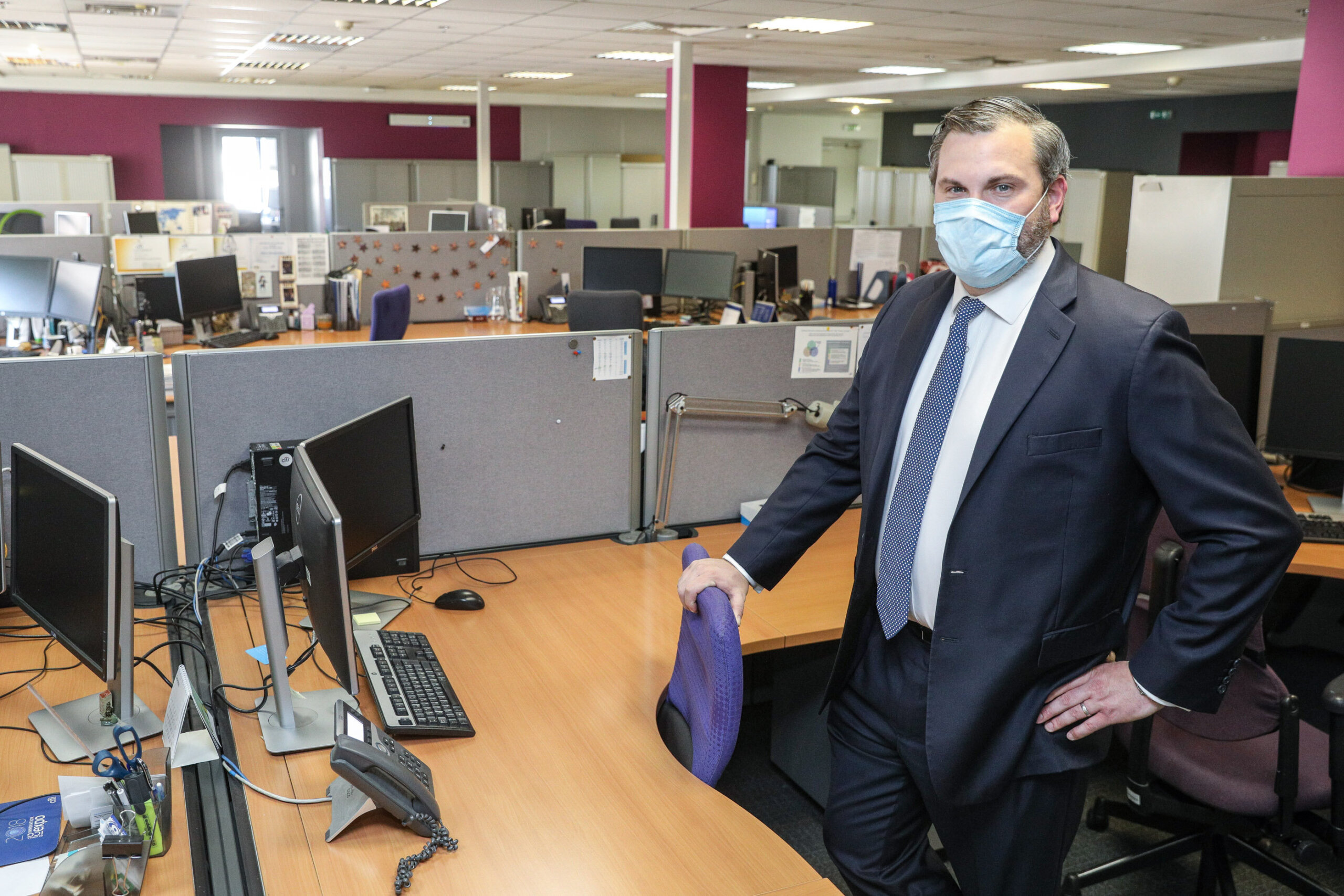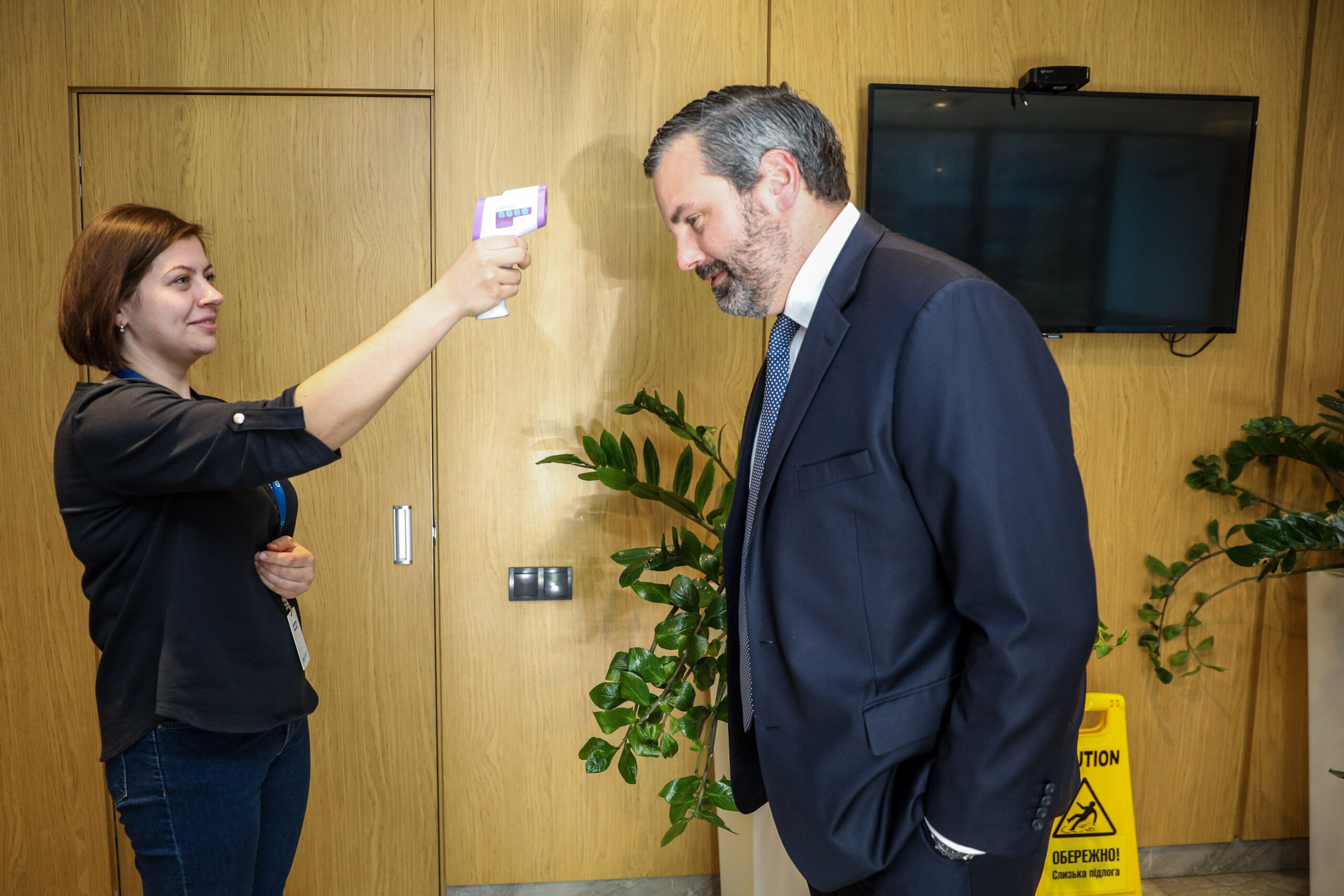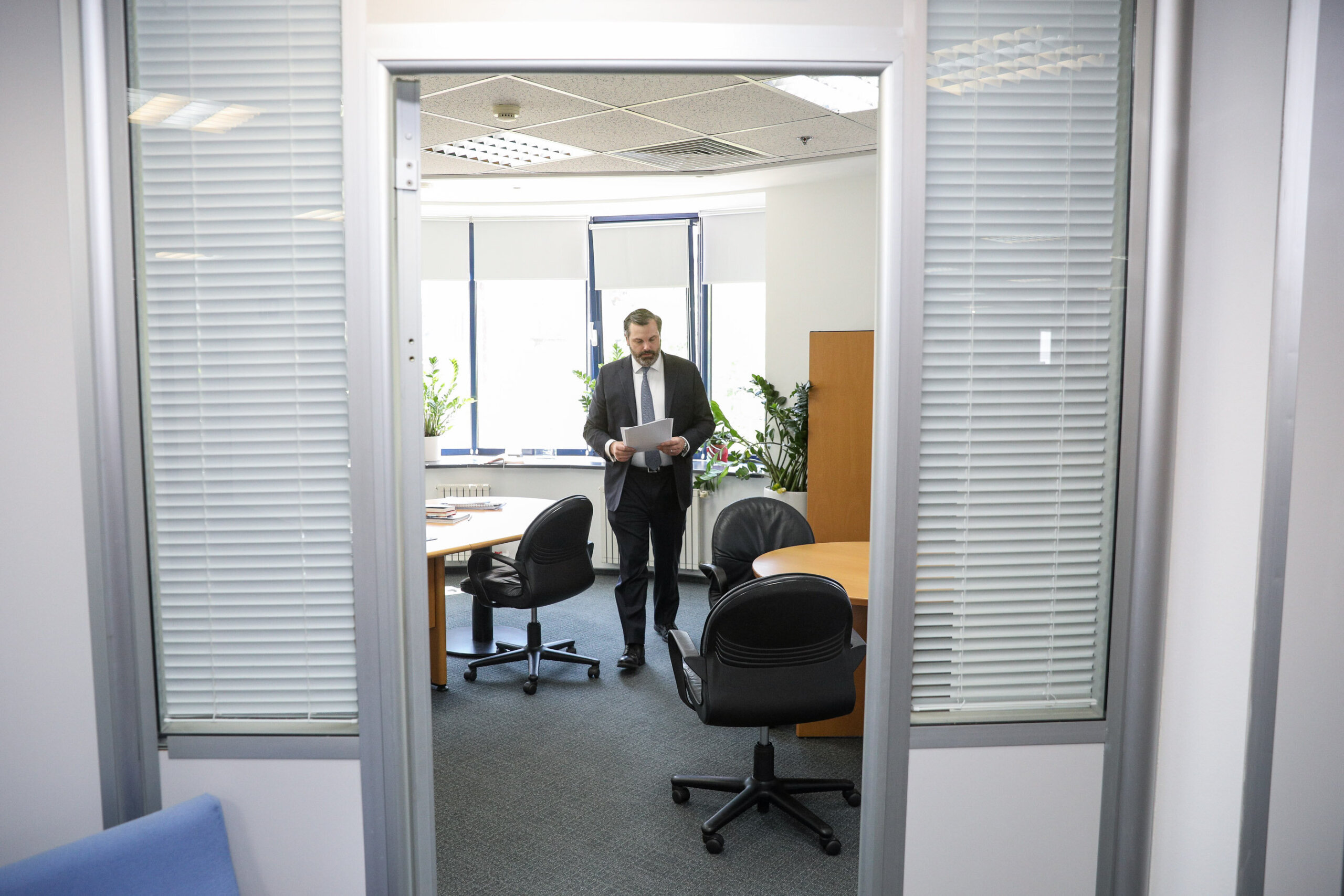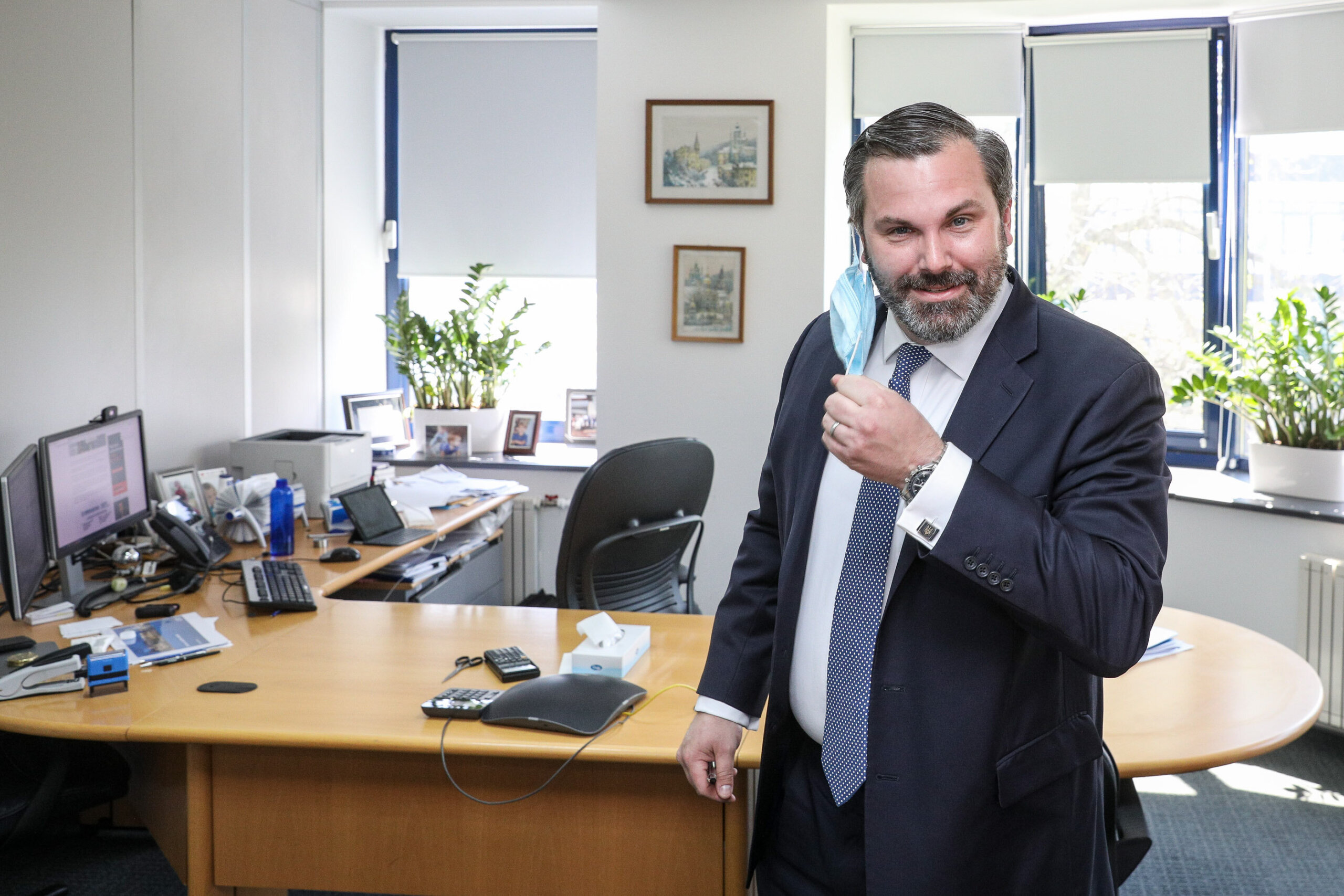Editor’s Note: Ukraine’s businesses are struggling after the country introduced nationwide restrictions on movement and travel starting on March 12. The restrictions have been strengthened since then and are set to last until at least May 22. Most businesses are closed with employees working remotely or not working at all. The exceptions include supermarkets, pharmacies, banks, parcel delivery services. The borders are closed to most forms of traffic, except Ukrainians returning by foot or by car. Most domestic transportation is closed or heavily restricted. Estimates range on how deeply the ensuing recession will harm Ukraine. The Kyiv Post talked with entrepreneurs about their daily struggles, asking how the quarantine has affected their ventures and what they are planning to do once it’s lifted.
We want to hear your personal story of survival during this national lockdown. Please contact us at [email protected].
Alexander McWhorter
Citibank country officer and corporate bank head for Ukraine. Citibank is a U.S.-based bank with offices in nearly 100 countries, including in Ukraine.
“We do not expect significant deterioration in assets’ quality or defaults of our clients in the nearest perspective. However, we are a client-driven company, and we depend on them. After a slowdown initially during quarantine, we are seeing activity to pick up again as clients have adjusted their businesses to remote work or other adaptations for the quarantine period, particularly around starting to use more of our digital solutions across our wide range of products.

Alexander McWhorter, the Citibank country officer and corporate bank head for Ukraine, speaks with the Kyiv Post in the company’s Kyiv office on April 29, 2020. (Kostyantyn Chernichkin)
“One of the most challenging decisions was around shifting the majority of our staff to remote work, which was something we had never done before and was an extraordinary test of our staff and our systems. Thanks to our incredible team and their ability to come together and find innovative solutions quickly, this worked well. Overall, we had a high level of responsibility for adapting to the situation as quickly as possible to maintain our ability to serve our clients.
“Citi has seen many crises around the world, and our focus is on making sure we prioritize protecting our staff and their families, as well as serving our clients and communities. We continue to take proactive measures to preserve their well-being. Before the shutdown, we put in place local and regional contingency plans and a well-established business strategy. All of them have been essential for us being able to quickly respond to this crisis, by tailoring them to this situation.
“One of the newest things for all of us is that over 90% of our team is working remotely. I’m glad to say that this has been successful so far: We continue maintaining our ability to fully serve our clients while providing the safest work environment for the employees. We can continue in this model as long as needed, and continue to provide our full suite of services to our clients.
“At the same time, we feel like a team more than ever and even if we are not physically on the same site, we still want to take an opportunity to get to know each other a little better. So we recently held a video talent show to see the hidden talents of our staff and their families – it’s important to boost morale and be the one team, especially in this time, and it was amazing to see how talented and well-rounded our staff are and how impressive their children are.
“This month, Citi Ukraine made a special payment to employees most likely to feel economic hardship from COVID-19-related challenges. This is a part of the global compensation award targeting 75,000 colleagues all over the world who qualify under the annual salary rate criteria. The award for each country is based on living expenses, overall pay levels, and other factors. A special one-off compensation award was provided to 26% of our colleagues to support those who are in the most need.
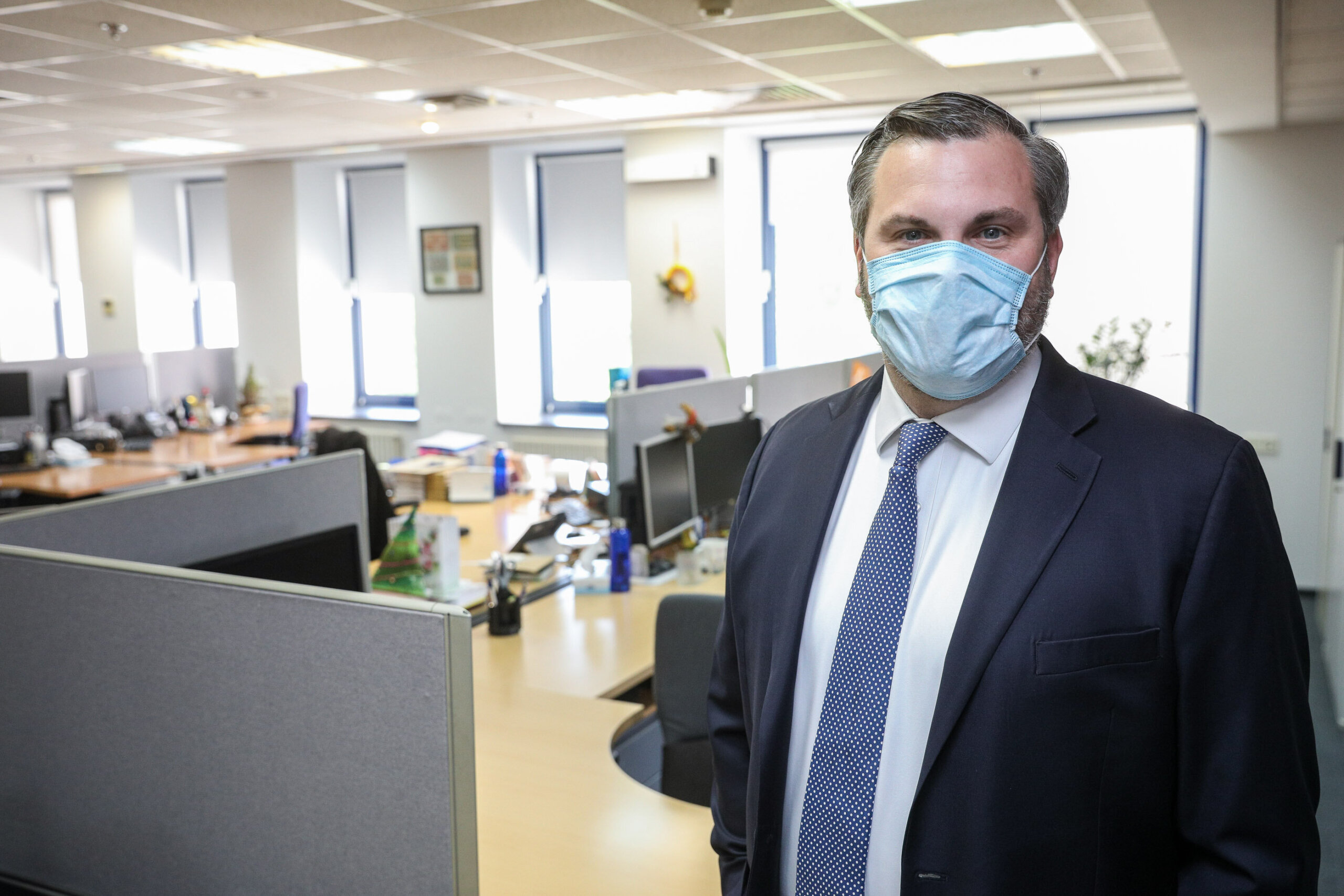
Alexander McWhorter, the Citibank country officer and corporate bank head for Ukraine, poses for a picture in the company’s Kyiv office on April 29, 2020. (Kostyantyn Chernichkin)
“What makes (us) keep going despite the difficulties is understanding that our clients rely on us and see us as a trusted partner and Citi’s robust support to employees all over the world.
“I think one of the most important things especially in challenging times is communication. It’s good we have an opportunity to exchange our opinion with many of the authorities.
“2019 was a tremendous year when we were helping to unlock the potential of the country and doing our best to help foreign investors to invest in the local market. Around $5 billion is already being invested in the local government bonds by non-residents to support our multinational and Ukrainian clients’ growth. Planning the recovery and stimulating economic growth should be part of the discussion even now. An important first step is unlocking the International Monetary Fund package in order to maintain financial stability and demonstrate Ukraine’s commitment to being a part of the global financial system.
“Obviously, we live in unprecedented times and see many challenges face to face every day but our commitment to the country, our teams, and clients should give us strength. We have to follow our commitment and do our best to keep being trusted partners to our communities and clients.”
CORONAVIRUS IN UKRAINE: WHAT YOU NEED TO KNOW
- As of April 30: 261 people have died from COVID-19 in Ukraine; 1,238 people have recovered.
- 10,406 confirmed cases of COVID-19 in Ukraine as of April 30. The first case was identified on March 3.
- Ukraine has extended its quarantine measures until May 11. The government outlined a plan to ease restrictions gradually.
- The measures shuttered most everything but hospitals, supermarkets, pharmacies, banks, gas stations, and other critical enterprises.
- How the Ukrainian government has been responding: TIMELINE
- Misinformation on coronavirus is going viral in Ukraine.
- Doctor’s advice: How to stay safe.
- Foreign Ministry: What you need to know about traveling to and from Ukraine now
- Why the Kyiv Post isn’t making its coverage free in the times of COVID-19.
- Coronavirus stops the Kyiv Post’s print edition for now.
- Where to buy masks.
Effects on the economy:
- COVID-19 is already inflicting harm on Ukraine’s economy.
- The former minister of economy says half a million Ukrainians may lose their jobs in the COVID-19 crisis.
